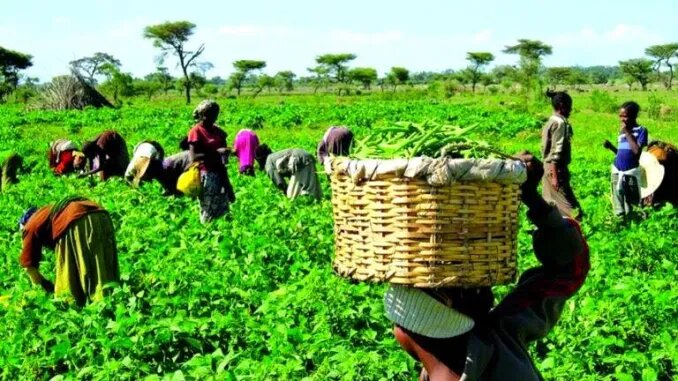The Lagos Chamber of Commerce and Industry (LCCI) has emphasized the importance of creating a conducive environment for sustainable agricultural practices, supporting smallholder farmers, and fostering agribusiness entrepreneurship. Dr. Michael Olawale-Cole, President of LCCI, made this call during the commencement of the 2023 LCCI Agrofair and Symposium in Lagos. The event’s theme, “Food Security and National Development in Nigeria,” resonates deeply as it addresses a critical challenge on both a national and global scale.
The Federal Government’s recent declaration of a national emergency on food security in response to rising inflation and the subsequent unaffordability of basic foods has underscored the urgency of the issue. Olawale-Cole highlighted that food security, ensuring access to safe and nutritious food for all, serves as a cornerstone for the prosperity of communities, the economy, and the future. While progress has been made thanks to the resilience of farmers and entrepreneurs, significant challenges persist.
Nigeria, blessed with abundant agricultural resources, must prioritize food security. The nation’s capacity to provide sufficient food directly influences overall development, stability, and progress. Embracing modern technologies that enhance productivity while preserving natural resources is imperative. Furthermore, recognizing the interconnection of food security with critical aspects like education, healthcare, infrastructure, and social welfare is vital.
The 2023 LCCI Agrofair and Symposium serves as a dynamic platform for dialogue, learning, and collaboration on innovative farming techniques, supply chain efficiency, market access, and trade policies. Mrs. Ibironke Emokpae, Permanent Secretary in the Lagos State Ministry of Agriculture, emphasized the theme’s relevance in ensuring food security.
Food security encompasses not only the availability of food but also its accessibility, affordability, and nutritional value. In Nigeria, with its diverse and dynamic landscape, where agriculture plays a significant role in the economy, food security is more than a moral imperative—it’s a strategic necessity for national development.
Agriculture has historically been the backbone of Nigeria’s economy, providing employment for a substantial portion of the population and contributing significantly to the GDP. Addressing agricultural sector challenges requires a comprehensive approach involving governments, the private sector, investors, academia, and civil society groups.
Kola Aderigbigbe, Chairman of LCCI Agro and Allied Sector, stressed the need to elevate agribusiness to the forefront of national development. Despite its current low profitability due to inadequate infrastructure and investment, the sector remains one of the highest employers of labor. Aderigbigbe called for increased investment in security and innovation to bolster agricultural production and boost exports.
Creating an enabling environment for food security and national development requires a holistic approach, considering ecological systems, farmer security, and adequate infrastructure. The Ministry of Agriculture plays a critical role in national survival and development, and its success in delivering on the mandate of national food security is paramount.
Achieving food security means Nigeria can move beyond self-sufficiency and begin exporting agricultural surpluses as industrial raw materials. Getting it right in the agricultural sector lays the foundation for the country’s total development.
Efforts to address the country’s ecological systems are essential in guarding against flooding and achieving sustainable food security. Effective implementation of strategic plans and initiatives, such as those proposed by the Bola Tinubu administration, holds the promise of achieving national food security.
Mr. Alwan Hassan, Managing Director of the Bank of Agriculture, represented by Mr. Adekunle Osho, South-West Zonal Manager of the Bank, highlighted the pertinence of ensuring food security in Nigeria. Agriculture remains the primary livelihood for most Nigerians and forms the bedrock of the country’s economy. Achieving food security requires a multifaceted approach, encompassing agro-production levels, proper handling of produce, value addition, and seamless distribution to ensure availability and nutritional value for healthy living.









